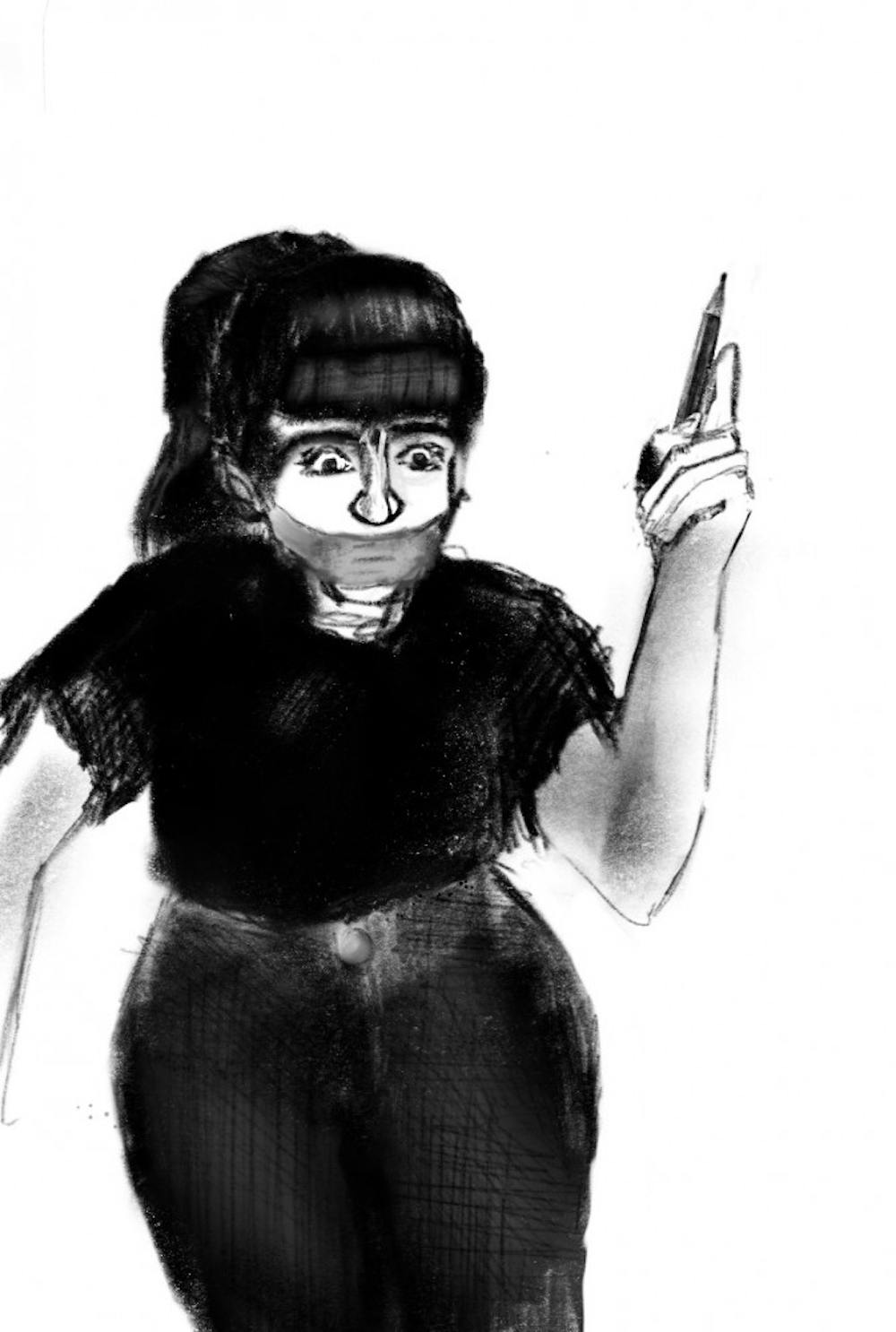The presidential debate has taken a new format — sidewalk chalk.
Across the nation, universities have engaged a new freedom of speech debate on chalk messages scribbled across campuses.
Messages on the University of Illinois’s quad read “They have to go back #Trump,” “Build the Wall” and “Trump Deportation Force.”
These messages have brought forth issues of free speech and hate speech.
The messages occurred during the same time a Knight Foundation and Newseum Institute study found 78 percent of college students believe campuses should expose students to all types of speech and viewpoints.
However, the same study found students “believe colleges should be allowed to establish policies restricting language and behavior that are intentionally offensive to certain groups, but not the expression of political views that may upset or offend members of certain groups.”
We believe free speech on campuses must be encouraged to create the educational debates to question and defend values.
The key is to differentiate free speech from hate speech.
It’s difficult to evaluate when free speech crosses the chalked line to hate speech.
This is not a question of sensitivity of generations.
The debate needs personal responsibility and a willingness to entertain opposing beliefs in a mature manner.
Every person is entitled to their own beliefs.
However, that freedom of speech crosses over to hate speech when the objective of the message is not expression but inflammation.
According to the Knight Foundation, 22 percent of college students “believe colleges should create a positive learning environment for all students that would be achieved in part by prohibiting certain speech or the expression of views that are offensive or biased against certain groups of people.”
While this ideal environment would create fewer arguments, it’s a direct stifling of first amendment rights.
Restricting students’ abilities to express themselves leads to emotional turmoil.
According to psychologist Barton Goldsmith of psychologytoday.com, “when you express how you really feel (in an important matter) , problems get solved, relationship issues get resolved and life is easier.”
Self-expression such as students’ chalking “Trump 2016” across campuses like Emory and University of Tennessee at Chattanooga enables students to identify and address upcoming issues in their communities.
The key to these debates is self-filtering, which requires students to bring forth their opinions and emotions in an accurate way without being rude or threatening.
Sixty-nine percent of surveyed students believe colleges should be allowed to establish policies that restrict slurs and other language that are intentionally offensive.
Yet a 72-percent majority of students reject the idea that colleges should be able to restrict expressing political views.
Surprisingly, Republicans, Democrats and Independents are about equally likely to oppose limits on offensive political speech (75 percent, 72 percent and 73 percent respectively).
No matter if you’re Feeling the Bern or hoping to Make America Great Again, there’s a sidewalk square open for a respectful debate.




